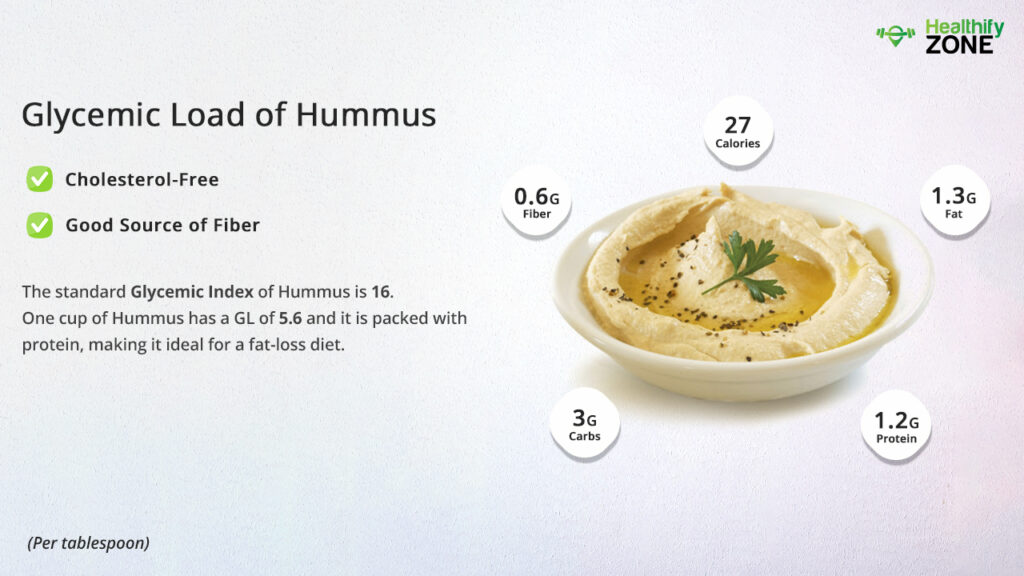Hummus has an extremely low Glycemic Index of 10. Nevertheless, depending on the method of preparation and the combinations we serve it with, this might range widely from 6 to 86. Hummus is a delicious and nutritious dish made from mashed chickpeas, salt, garlic, tahini, lemon juice, and other seasonings. This has a silky texture, melts in your mouth, and gives a lot of flavor to whatever you serve it with. It also has a vivid, creamy taste.
Hummus is a delicious and healthy side dish. The family of pulses has a variety of nutrients that are beneficial to the body. It contains some fiber, vitamins, minerals, protein, and other nutrients. Hummus is frequently used as a savory side dish with meals, a healthful spread on bread, a dressing on salads, a dip for fresh veggies like baby carrots and celery, and a thick sandwich sauce.
It can be purchased from nearby stores and produced at home using only the simplest components. Additionally, it can be kept fresh and chilled for a suitable period of time.
Is Hummus Safe for Diabetes?
Hummus is among the best diabetic foods available. Hummus has a very low glycemic index, in addition to being loaded with protein, vitamins, heart-healthy monounsaturated fats, and minerals that are great for those with diabetes.

Is Hummus Suitable for Weight Loss?
Hummus is a fantastic source of protein and fiber, both of which may aid with weight loss. According to studies, those who regularly eat hummus or chickpeas are less inclined to be fat, have a lower BMI, and have a smaller waist size.
What is the Best time to Consume Hummus?
The ideal time to eat hummus is in the afternoon. According to a study, eating hummus in the afternoon can help you lower your blood sugar levels by roughly 5%.
The Bottom Line: The Glycemic Index of Hummus is 10
Hummus is a nutritious Middle Eastern dip and spread that is high in vitamins and minerals. Hummus and its components have been linked in studies to a number of remarkable health advantages, including lowering the risk of heart disease, weight loss, better digestion, reducing inflammation, and increasing blood sugar control. Additionally, most people can enjoy hummus because it is naturally free of typical dietary allergens and irritants like gluten, nuts, and dairy.
Use the above recipe to incorporate hummus into your diet; it only takes a few minutes to prepare. Overall, hummus is an extremely easy, nutritious, and delectable addition to your diet.